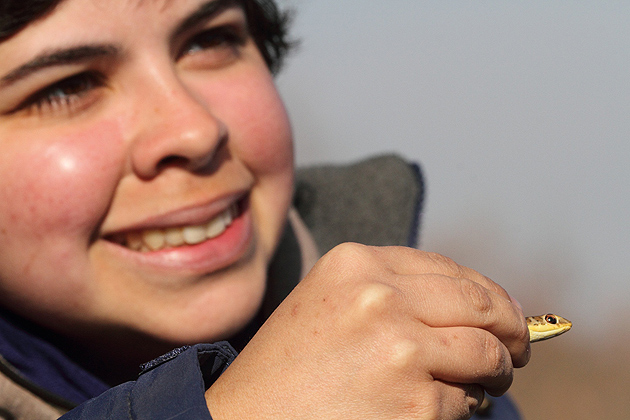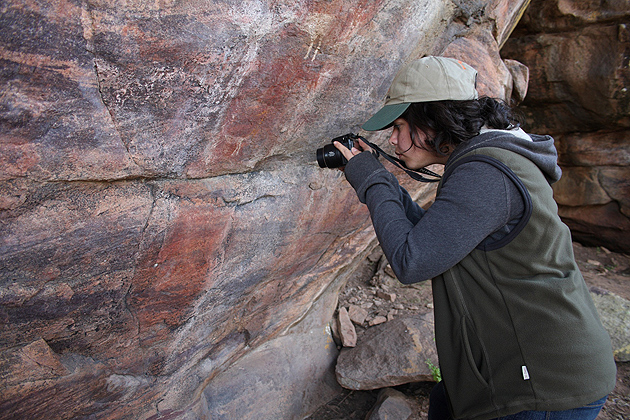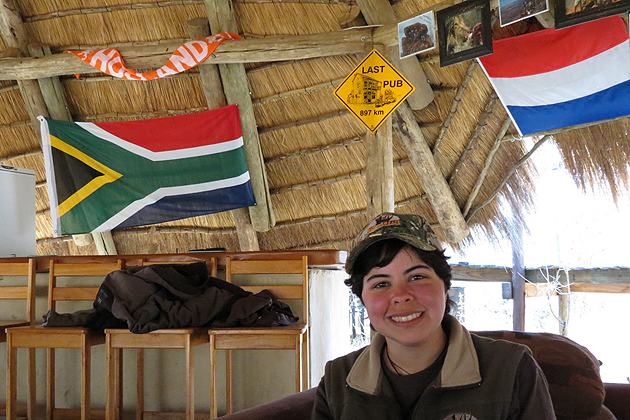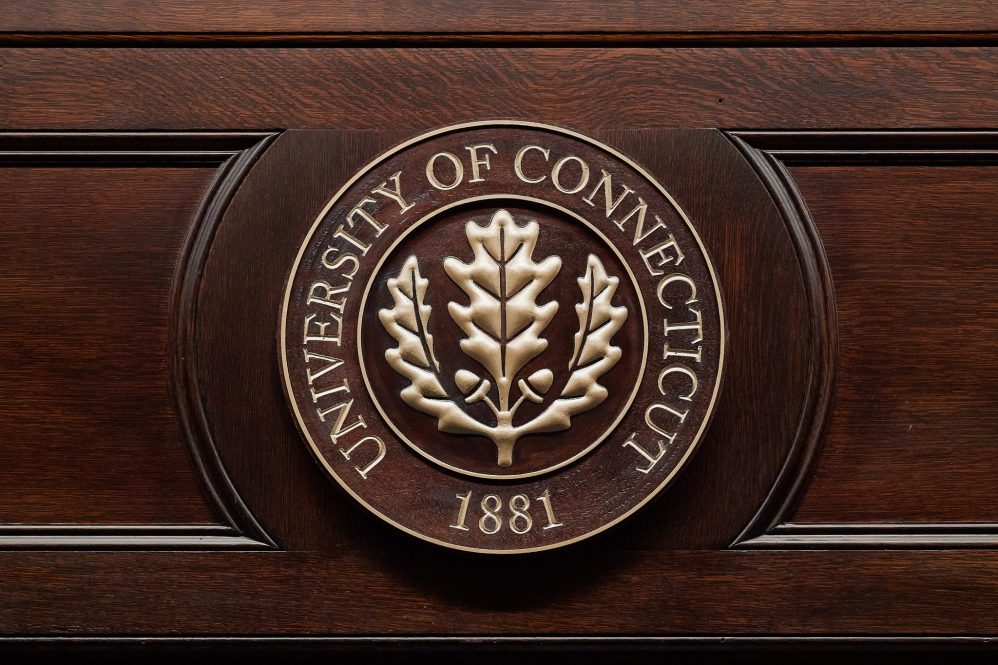In this second of a four-part special series, one of UConn Today’s journalists reports on the experiences of a recent UConn graduate whom she met when she traveled to South Africa this past summer.

Puerto Rico native Aileen Leask ’12 (CLAS), with her petite stature, sunny personality, and luminous smile, may at first glance seem out of her element in the dangerous and unforgiving habitat of the South African bush.
Yet she now lives at Entabeni Game Reserve in South Africa, where she is undergoing training to become a licensed nature guide. Enrolling this past July in an intensive, hands-on, six-month course at the reserve, Leask has been doing everything from tracking lions on foot and learning how to handle a rifle to getting firsthand experience in wilderness survival.
“To be honest, I’m a city girl,” she says. “I’m afraid of spiders and insects and cockroaches. I can’t stand them. But I’m here … to learn how to respect them and to understand those kinds of animals – because there’s really nothing to be afraid of for the most part.”
Arriving at UConn five years ago, Leask, then 18, knew that she wanted to work with wildlife. She held fond memories of childhood field trips with her school back home – hiking in the rainforest of Puerto Rico and taking daylong outings to the small, uninhabited islands off its coast, rich with wildlife.
In her freshman year, she was recruited to live in UConn’s Global House Learning Community by a professor who was serving as director. That professor was Morty Ortega, an associate professor in the College of Agriculture and Natural Resources.
Leask eventually mentioned to him her interest in wildlife. “All in one day, he showed me what kind of schedule I was going to have,” she says. “He told me there was an Africa ecology class that he teaches and that he could take me to Africa to learn about wildlife. He showed me volunteer opportunities that I could be doing at that moment. Immediately, it opened up doors to what I could be expecting. That was such a positive, positive experience for me.”
‘I fell in love with Africa’
So in August 2010, Leask accompanied Ortega to Entabeni Game Reserve for a 25-day trip, a required part of the coursework for his African field ecology class.

There, she and fellow students spent their time observing wild animals in their natural habitat and learning how to conduct field research, all while living in tents in the bush and getting to know one another over long talks around the campfire without the distraction of television, cell phones, or the Internet. In no time, Leask was hooked.
“Having a rhino come up to you when you’re in a car with no roof and no doors, with his horn a meter away from you, and you’re just looking into his eyes – it’s hard to describe what I took away from it,” she says. “I fell in love with Africa.”
Leask vowed to return. Yet the cost of the six-month course – roughly $16,000 – posed a considerable challenge. Undeterred, she put together a budget and took on two jobs to save the money she needed.
As part of Entabeni’s six-month nature guide training course, Leask is mastering in-depth lessons in tracking wild animals, performing first aid, and handling venomous snakes. Beyond that, she will also practice serving as a guide for visitors to the reserve, driving the open-air cruisers for her guests, and enlightening them about the resident wildlife.

One of eight guides-in-training currently at Entabeni, Leask is the only female in a group of men. Yet amidst the dangerous animals and insects of the bush, the good-natured rowdiness of her fellow trainees is nothing Leask can’t handle. After all, the final test of the course – survival in the bush without food and with only minimal supplies – will prove exactly how tough she is.
Upon completing the six-month training course, Leask will be guaranteed another six months of practical experience working as a guide at Entabeni. From there, she plans to pursue a career in wildlife rehabilitation – although most likely closer to home. But, she says, her route to Africa through UConn is what opened the doors to everything.
“This is really just a life-changing experience,” she says. “You don’t want to make it sound too cliché. That’s what everybody says about everything, but it truly is. … What you do here and what you see here – you don’t see it anywhere else.”
To learn more about African Field Ecology, which is a General Education course, visit http://bit.ly/RgJM3C, or attend the series of guest lectures to be held Oct. 1-4 in Storrs by Lee Gutteridge of the Entabeni Game Reserve. Email toafrica2013@gmail.com for details.



